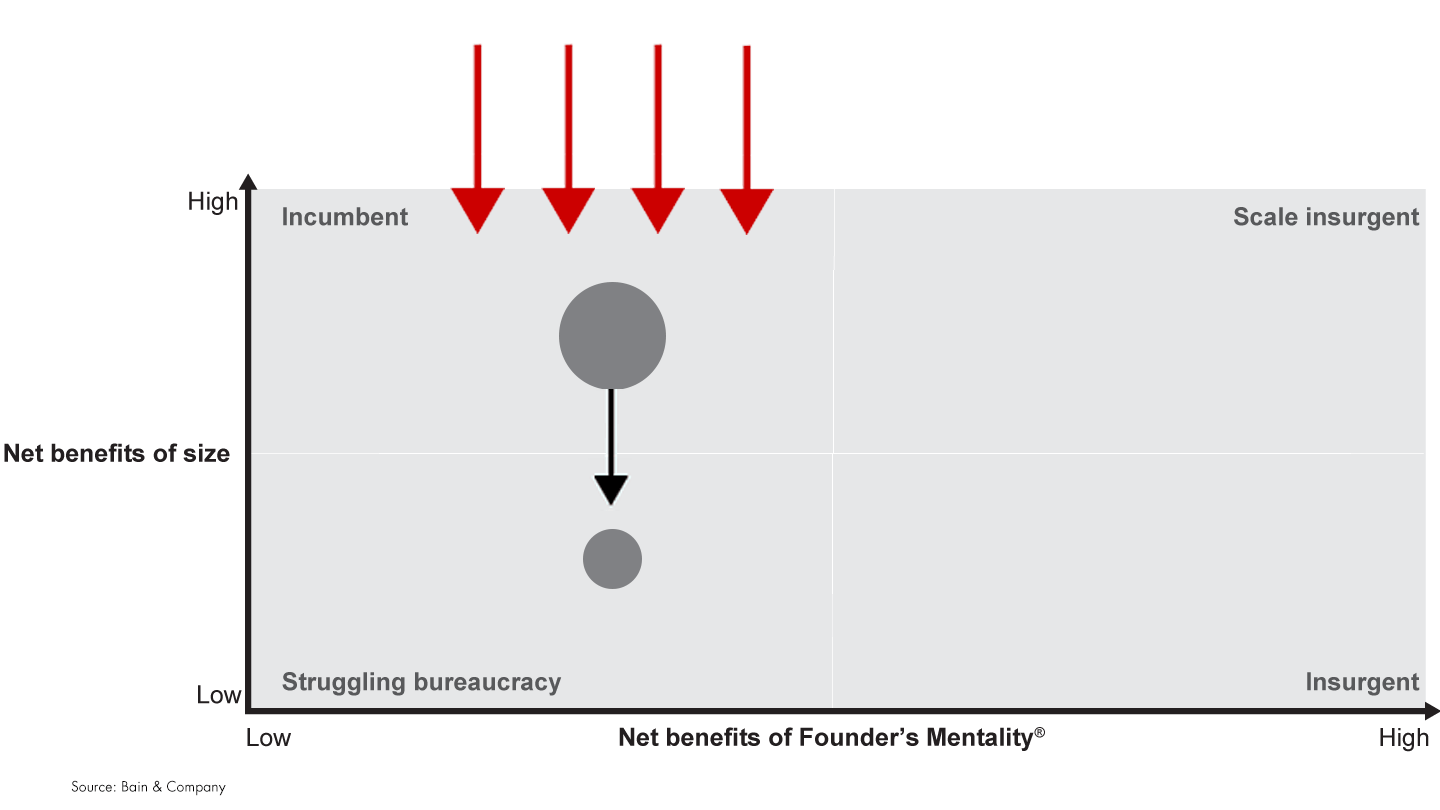Founder's Mentality Blog
The power of incumbency can be formidable for a company that remains focused on its core mission. But just as insurgent companies encounter a predictable set of forces that erode the Founder’s Mentality® as they grow, large multinationals struggle against forces that threaten to turn the power of incumbency into the pain of bureaucracy. We refer to those forces as the southward winds.


For large incumbents, one particularly corrosive by-product of growing complexity is the rise of the middle management planner. At their worst, they focus attention on process instead of what really matters: delighting the customer.
As planners gain influence, they run meetings against time and template, allowing very little opportunity for business leaders to discuss what customers want or listen to the front line and take action on their issues. The simplicity of "those who sell and those who support them" gets replaced with "those who create templates and those who fill them out." The annual budgeting cycle, the annual strategy cycle, the endless side meetings—they all sap time and energy from the organization.
Most company planning systems are broken, and they remain that way because most leaders just work around them. But they absorb massive capacity in the organization and fail to link the different parts of the company together. The resulting inefficiency and noise become a competitive disadvantage as they push the company further and further away from its focus on the customer. Eventually, the people who actually run the business stop talking to one another. This breakdown of "adult" conversation between different departments that should share in the delivery of the customer experience results in its fragmentation.

About the Founder's Mentality
The three elements of the Founder's Mentality help companies sustain performance while avoiding the inevitable crises of growth.
Restoring the focus on the customer requires several steps. The first is to separate strategic, marketing and operational discussions from budgeting discussions. Leaders need to carve out the time required to debate the fundamental issues that need to be decided first because they are material and greatly impact the future. CEOs need to reserve 40% of their time for these issues, with special focus on reorienting performance and management discussions toward "compass" discussions—"What do our customers want and how are we uniquely suited to deliver that?"
Once the important decisions are made, the next step is to ensure that attention stays focused where it should be—on the big bets that could produce major swings in value. The goal is to set up the right dialogue between the leadership and the front line and make sure those lines of communication take priority. This is the conversation that counts, because it forces the organization to monitor how key customers are reacting to new initiatives and allows for quick decisions on the course corrections necessary to keep them satisfied.

Founder's Mentality®: The Southward Winds
Large multinationals often struggle against forces that threaten to turn the power of incumbency into the pain of bureaucracy.
Founder's Mentality®, Great Repeatable Models® and Repeatable Models® are registered trademarks of Bain & Company, Inc.